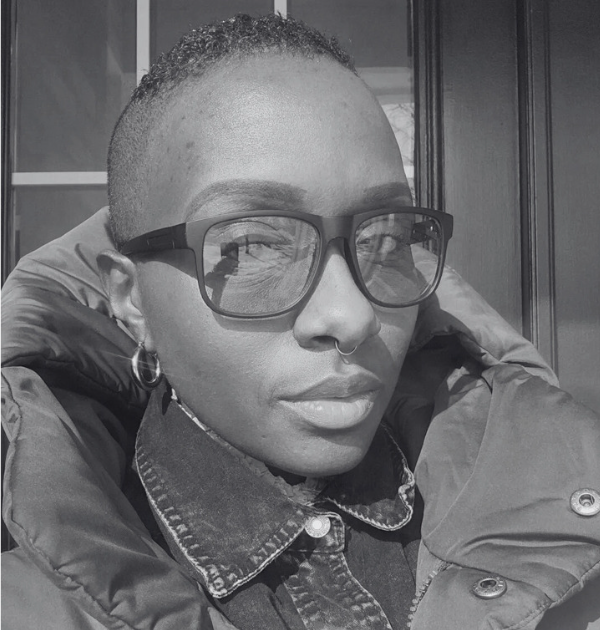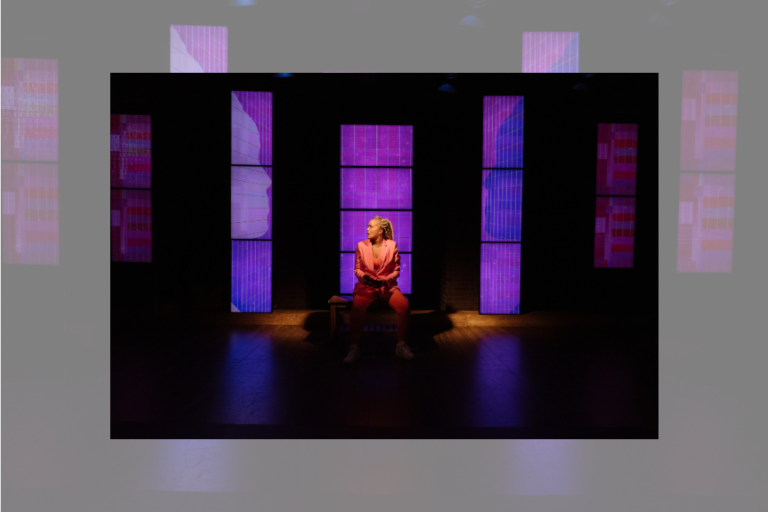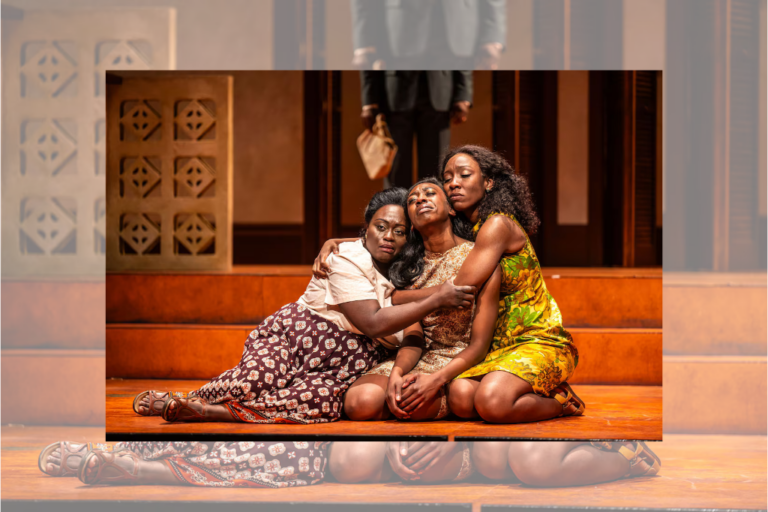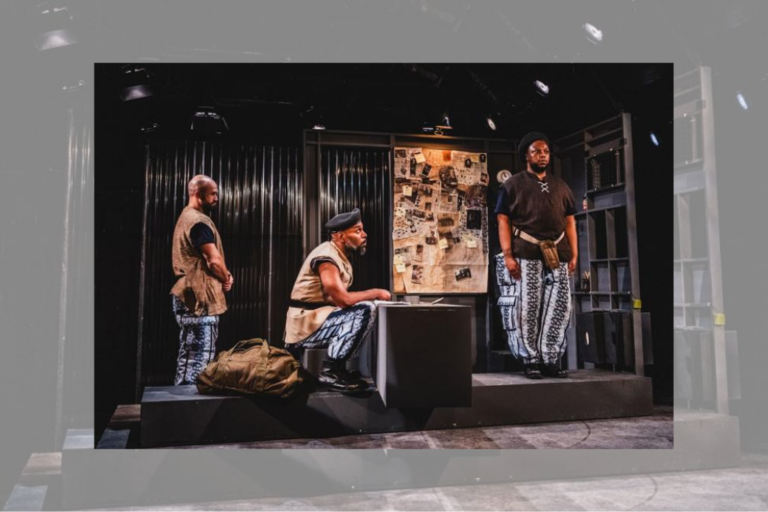REVIEW: The Legend of Daddy Hall feels like coming home
I’ve said it before and I will say it again: Toronto theatre, you are getting it right, and I love that for us!
I didn’t realize how much going to the theatre could become healing — and we could all benefit from more healing in our lives. The stories of our Black and Indigenous ancestors filled the walls on opening night at the Tarragon Theatre Mainspace, reminding us of the lands and waters they’ve crossed and stewarded. Come Home — The Legend of Daddy Hall is an invitation for reclamation not bound by space or time. This intricate story filled with playful delight and integrity could satisfy the excitement of any theatre-goer. During rehearsal for the show, director Mike Payette called it an “ancestral fantasia.” I’d call it a belonging, an aural mélange of memory coming together.
Based on the true-life figure John “Daddy” Hall, the play stages the non-linear journey of this legendary Canadian as he faces himself — but not without his ancestral team guiding him along the way. From water to land, Hall’s journey is lengthy and at times mysterious, as the play weaves through time, space, and realms, to arrive right where it began. This is a story of a human’s journey of love and survival.
John “Daddy” Hall was said to be born of Jamaican and Mohawk ancestry around 1780 in Amherstburg, Ontario, before he was captured and enslaved in Virginia and Kentucky. Legend says he then escaped back to Ontario, where he eventually died in Owen Sound at a rumoured 117 years of age. This world premiere play is not a historical text — there is very little information about who this man really was. Rather, playwright Audrey Dwyer has brought Hall to life by creating a world where we witness a human navigate pain and heartache through sheer determination.
From watching his mother take her own life when they were taken into slavery, to his first wife falling through the ice while they escaped back to Canada, Hall dreams of having a life different from what he’s seen, and at the end of his life, he relives those memories to understand how to support the generations to come.
This play moves quickly as it travels through the past, present, and future. Ancestors, spiritual guides, the universe, all have their hands in making sure everything is going to plan, even if it looks like it’s all falling apart!
The play starts with Hall (a vibrant and generous Daren A. Herbert) entering the spiritual realm. Under a purple hue and a soft spotlight, he lies centre stage. And once the veil is lifted, we see a multi-levelled set, filled with cracks and crevices designed by Jawon Kang. Coupled with Michelle Ramsay’s lighting design that encapsulates time moving from sunset and sunrise. The live music by Unsettled Scores (Spy Dénommé-Welch and Catherine Magowan), is played above the stage. They have an assortment of instruments including flute, electric guitar, bass, and many more. The music was atmospheric and transported you from scene to scene: from the swamp, to the boat, to the plantation.
Only 90 minutes in length, the play is full of personality. The women in Hall’s life — Mary (Helen Belay), Elizabeth (Nicole Joy-Fraser), and Ma (Emerjade Simms) — loved him so deeply, but were never afraid to remind him of his ways. “Daddy” Hall is stubborn and didn’t always listen to the people he loved most, and often made decisions that benefited only himself. (Hall had to reconcile with both those truths.)
Simms brings Ma to life and shows her dialect range by tapping into her Jamaican ancestry, and Belay shines as Mary by embodying the poetic text. Joy-Fraser reveals her experience as an actor through the calm yet direct demeanour she brings to Elizabeth.
The relationship between Pa (Brandon Oakes) and Hall is tender and loving. While each character represents the past and the present, Billie played by Troy Adams represents the future. (Adams’ character offered witty criticism of what it’s like to experience everyday microaggressions as a Black and Indigenous Canadian.) Billie retells stories of what he witnessed his child experience in school and the prejudice he received for how he looked. Adams’ character speaks of the injustice in the world and reminds us of how to not continue them.
One of the most intriguing elements of the play is its use of language. Guided by Indigenous dramaturge Monique Mojica, the actors mainly spoke English, but also Mohawk. Hall was an interpreter during the War of 1812, and he was said to have been fluent in several languages. This added detail comforted me. The sound of different languages and dialects created a familiar space, one that I was accustomed to growing up as a first generation Canadian with Caribbean (Afro-Guyanese and Amerindian) ancestry. It also reminded me most of today’s Toronto, and all the many languages that are spoken here.
Home is not a place, it’s a feeling, and Come Home — The Legend of Daddy Hall feels like I came home. I was taken on a journey watching this play and came out honoured to be a witness to such an incredible story. I encourage you to do the same.
Come Home — The Legend of Daddy Hall runs until June 9. Tickets are available here.
Intermission reviews are independent and unrelated to Intermission’s partnered content. Learn more about Intermission’s partnership model here.















Comments